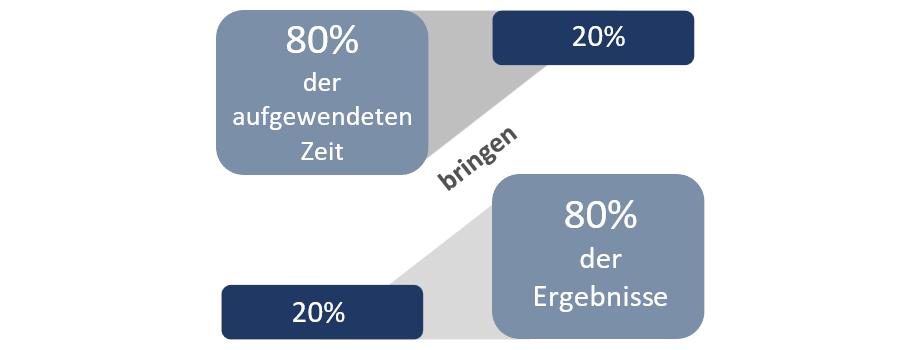The Pareto Principle
Work more efficiently in time-critical situations with the 80-20 rule!
The Pareto Principle
The Pareto Principle
The Pareto Principle is named after an Italian economist, engineer, and sociologist named Vilfredo Pareto. It's a well-known time management method, also called the 80-20 rule. It suggests that 80% of results come from just 20% of the effort.
Today, time is a precious resource. Whether in personal or professional life, everyone tries to accomplish as much as possible in the shortest time. Professionally, you might spend too much time on a task that doesn't significantly impact success. The Pareto Principle helps prevent this.


Below are examples of the Pareto Principle in different situations:
Examples
Sales: In some companies, 20% of employees generate 80% of total sales.
Inventory: Often, 20% of products take up 80% of storage space.
Everyday Life: Many people's closets are overflowing, yet they wear only 20% of their clothes 80% of the time.
Household: Imagine your parents are visiting in an hour. You've been too busy for a thorough cleaning, which would take hours. You decide to put clothes in the laundry basket, load the dishwasher, and vacuum. Your home now looks clean and tidy at first glance. You've done 80% of the housework in a short time. Your guests can come!
Time Management: When creating a presentation, the content is complete in 20% of the time. Most time would be spent on details like spell-checking, graphics, and animations. In time-critical situations, these details might not be necessary, so you can skip them.
The Pareto Principle in Seminar Planning
The Pareto Principle is also useful in seminar planning. It reminds you not to dwell on details but to focus on what's important.
Conclusion
The Pareto Principle is a helpful tool to save energy and time, achieving a lot with little effort. However, it's not an excuse to slack off at work. The 80/20 rule is a guide to work efficiently and focus on success, especially in time-critical situations. It also encourages prioritizing tasks wisely, both personally and professionally.
